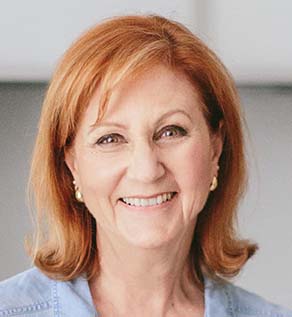Those with IBS often take a whole raft of medication and supplements in their efforts to feel better. However, this can sometimes be counter-productive and make matters worse. It’s very important to understand everything that goes into your gut and to do your own research into the ingredients of everything that you consume. Watch my video to learn more.
Transcription of Medication & Supplements on the Low Fodmap Diet
Those on the low Fodmap diet sometimes forget that everything that is swallowed affects your gut, and that includes medication and supplements.
Some medication like insulin for diabetics or high blood pressure pills are lifesaving and can’t be stopped. But that medication may contain high Fodmap inactive ingredients so do have a chat with your doctor and ask about all the ingredients in the medicine you are taking and not just the active ones. It could be possible to make a change if it is found that a certain medication is exacerbating your gastrointestinal problems.
Some of my clients come to me with a long list of medication that is being consumed, and that can be muddying the waters as we try to eliminate IBS symptoms with the low Fodmap diet. Many with IBS are on anti-depressant or anti-anxiety medication because they haven’t been absorbing tryptophan, which plays a part in regulating a person’s moods. This situation will gradually change as you start to actually absorb the nutrients in your food for the first time in ages. And so those medicines can be reduced under the careful supervision of your doctor – because many of them are habit-forming and the withdrawal from them has to be done with care.
Many medicines have common side effects that affect the gut and so it’s almost impossible to know if it is food or pills that are causing symptoms. This is a very tricky situation and has to be handled with care. Having a doctor who fully understands your personal situation and understands the concepts of the low Fodmap diet will go a long way to helping you resolve these problems together. If your doctor is uncooperative and doesn’t listen to your concerns, change doctor.
Now to supplements. Many people with IBS are taking a whole raft of supplements in an attempt to get better. And that is very understandable. But most of them will be unnecessary once you are eating a diet which is healthy for you because you will finally be absorbing all the nutrients in your food.
Many supplements contain high Fodmaps, and it takes considerable research and/or a helpful chemist to find the very best supplements which won’t hurt your gut.
I was taking a vitamin B supplement and finally narrowed down my morning queasiness to that pill. I looked through the ingredients and saw “inositol” on the list. The Fodmap group, Polyols end in “ol” so my interest was piqued, and I went down to my local chemist and asked her about it. She didn’t know off the top of her head what it was but got on the phone to the manufacturer and sure enough, it is a fermentable carbohydrate. She then did more research and found me a vitamin B supplement in powder form which is made from quinoa and has no fillers. I have been taking that for a while, and it is perfect for me. So, that just gives you an idea of how you might think you are doing the right thing but are actually worsening the situation.
And lastly but definitely not least, I just want to mention digestive enzymes. Well-meaning nutritionists and alternative health practitioners hand these out in bucket loads, unfortunately. I say unfortunately because I am yet to hear of one that doesn’t contain high Fodmaps and substances that still haven’t been tested for their Fodmap content. That’s a dangerous situation for someone with IBS.
In summary, regard every single thing that goes down into your gut with suspicion and do your research into them all. Google the ingredients and side effects of these things, become informed about what you are consuming and talk to your doctor or chemist about any doubts you have.
I have a section on medication and supplements in my book, The Low FODMAP 6-Week Plan & Cookbook.




I was taking d- ribose for Chronic Fatigue Syndrome but looking at the chemical composition of it seems like it could be a FOD . ( like fructose /galactose etc) It did seem to cause more bloating . Do you know if this is right ?
Fructose is one of the Fodmap groups so perhaps have a chat with your doctor about a substitute unless you have tested fructose and found it is not a trigger.
Hi Susanne,
I was recently prescribed
Certain probiotics. When I looked at the ingredients, they were full ingredients like titanium dioxide, magnesium stearate and silicone dioxide. Is there a good brand you could suggest for IBS C, that I could get online from Europe?
The problem with probiotics is that there is not yet enough research to create a suitable probiotic for those with IBS. They help other more specific issues but IBS is multi-faceted and there is no consistency in the gut microbiome of those with IBS so it’s not possible to create a probiotic that helps everyone. So, it is hit and miss – you may be on a probiotic that helps you or it could worsen your symptoms. Read this article.
https://www.npr.org/2016/08/18/490432969/eating-yogurt-is-not-enough-rebalancing-the-ecosystem-of-the-microbes-within-us
what is the brand of the B vitamin powder? I am B12 deficient and having a hard time finding a supplement that doesn’t have fodmaps in it.
I am sorry but I wrote this post a few years ago and don’t remember what the brand was. I no longer take them. I found them through a discussion with the pharmacist.
What is the Viamin B Complex that you are taking and is it a stress complex?
Please look to the answer to the question above yours for my reply.